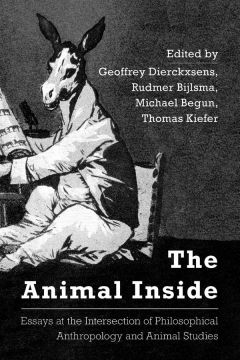
Additional Information
Book Details
Abstract
Much has been written about animals in applied ethics, environmental ethics, and animal rights. This book takes a new turn, offering an examination of the 'animal question' from a more fundamental, philosophical-anthropological perspective. The contributors in this important volume focus on how the animal has appeared and can be used in philosophical argumentation as a metaphor or reference point that helps us understand what is distinctively human and what is not. A recurring theme in the essays is the existence of a zone of ambiguity between animals and humans, which puts into question comfortable assumptions about the uniqueness and superiority of human nature.
While the chapters straddle the boundaries of historical-philosophical and systematic, continental and analytic approaches, their thematic unity knits them together, presenting a rich, broad, and yet cohesive perspective. The first part of the book offers general explorations of the relation between animal and human nature, and of the concomitant existential and ethical dimensions of this relationship. The chapters in the second part address the same theme, but, in so doing, focus on specific aspects of animal and human nature: imagination, politics, history, sense, finitude, and science
The Animal Inside offers a powerful riposte to those who might view Animal Studies as having but a limited purview. The essays collected in this volume attest to the inexhaustible potential of philosophical and ethical questions that arise when we apprehend the enclosure delimiting the human and animal as concepts. The commendable range of essays here open innovative and exciting new directions for further research.
Kalpana R. Seshadri, Professor, Department of English, Boston College
The Animal Inside throws new light, immersing itself into the discussions that help building social thought about nonhuman animals as we conceive it today. The perspective of this work is not ethical or moral, but a philosophical-anthropological one, even though ethical and moral concern is always near when it comes to the link between species. […] As a whole, this work offers a deep analysis over the most widespread western ideas on animals: although still dealing with human-nonhuman centrality as axis, it brings new thinking on longstanding problems.
Animals are back with a vengeance. Long neglected, or discredited by scholars as “thoughtless brutes”, they have made it to the forefront of theorizing in the humanities and cultural studies. This volume is bustling with superb scholarship, masterfully interweaving philosophical analysis with historical, literary and scientific perspectives. I am struck by the profundity and excellence of the contributors. A thrilling read.
Jan Slaby, Institut für Philosophie, Freie Universität Berlin
Geoffrey Dierckxsens obtained his Ph.D. in philosophy at the University of Antwerp.
Rudmer Bijlsma is a post-doctoral research fellow at the University of Fort Hare in South Africa.
Michael Begun is a graduate student in philosophy at Fordham University.
Thomas Kiefer is a graduate student in philosophy at Fordham University.
